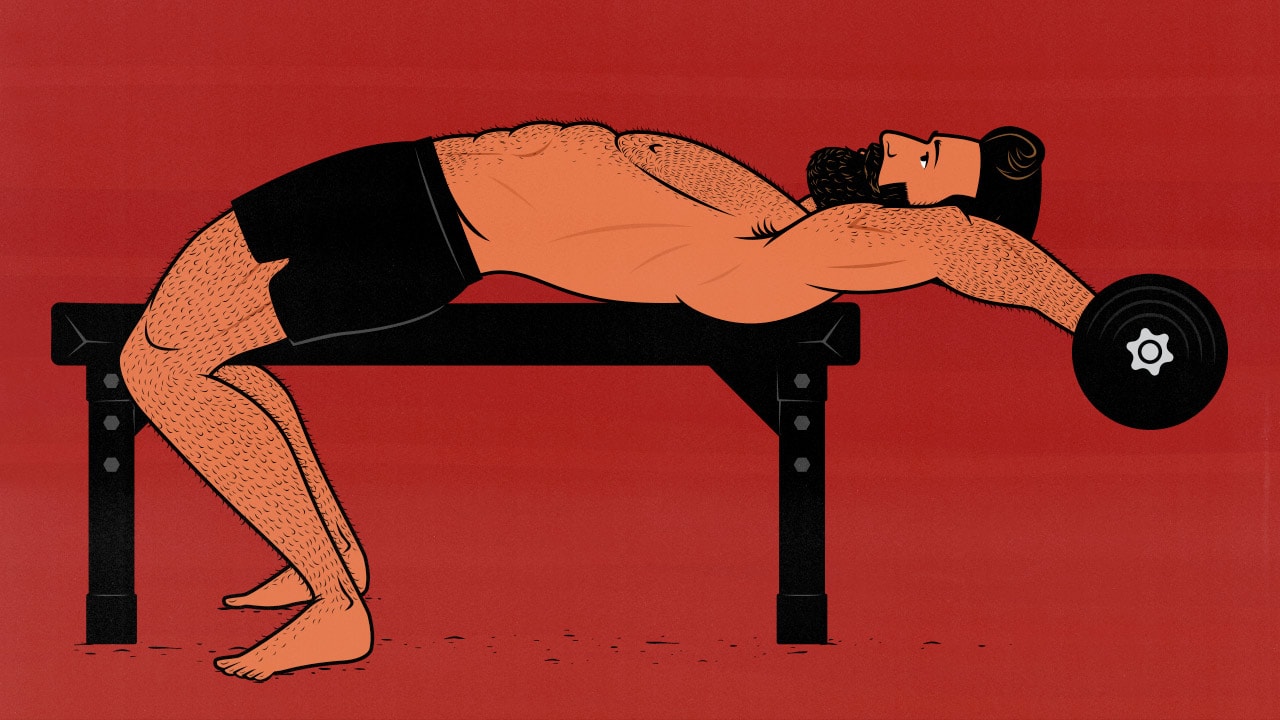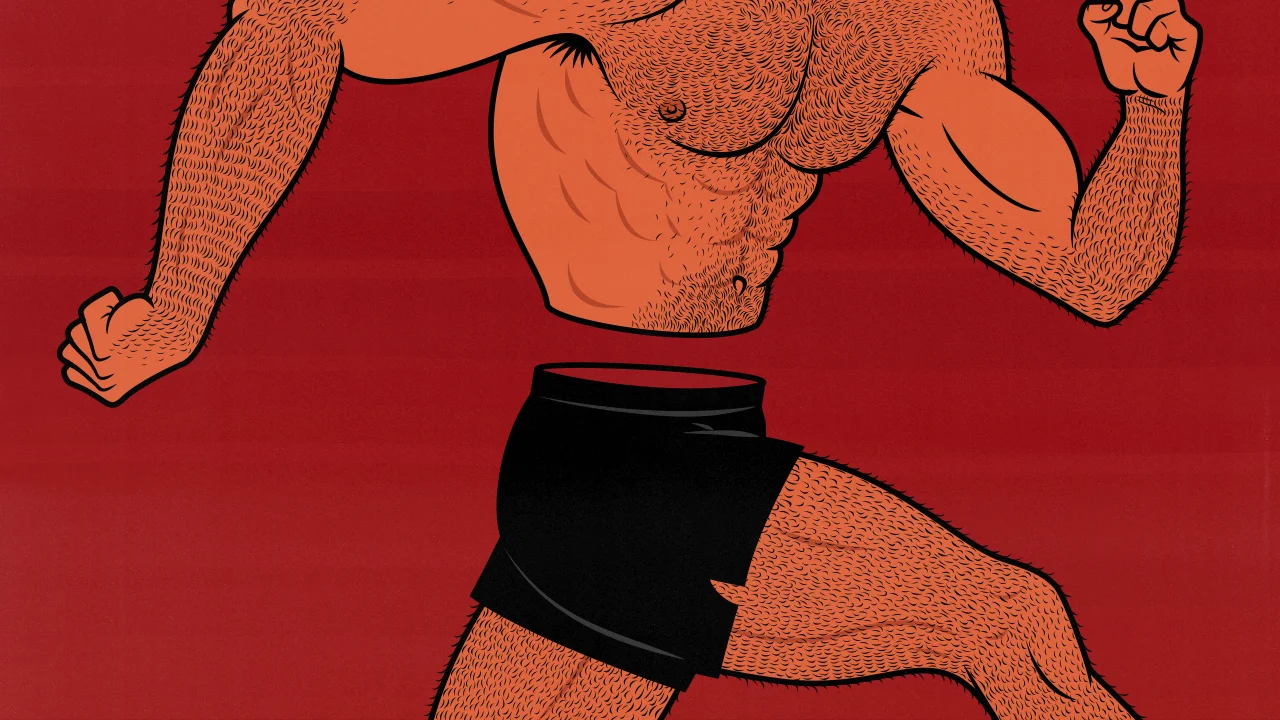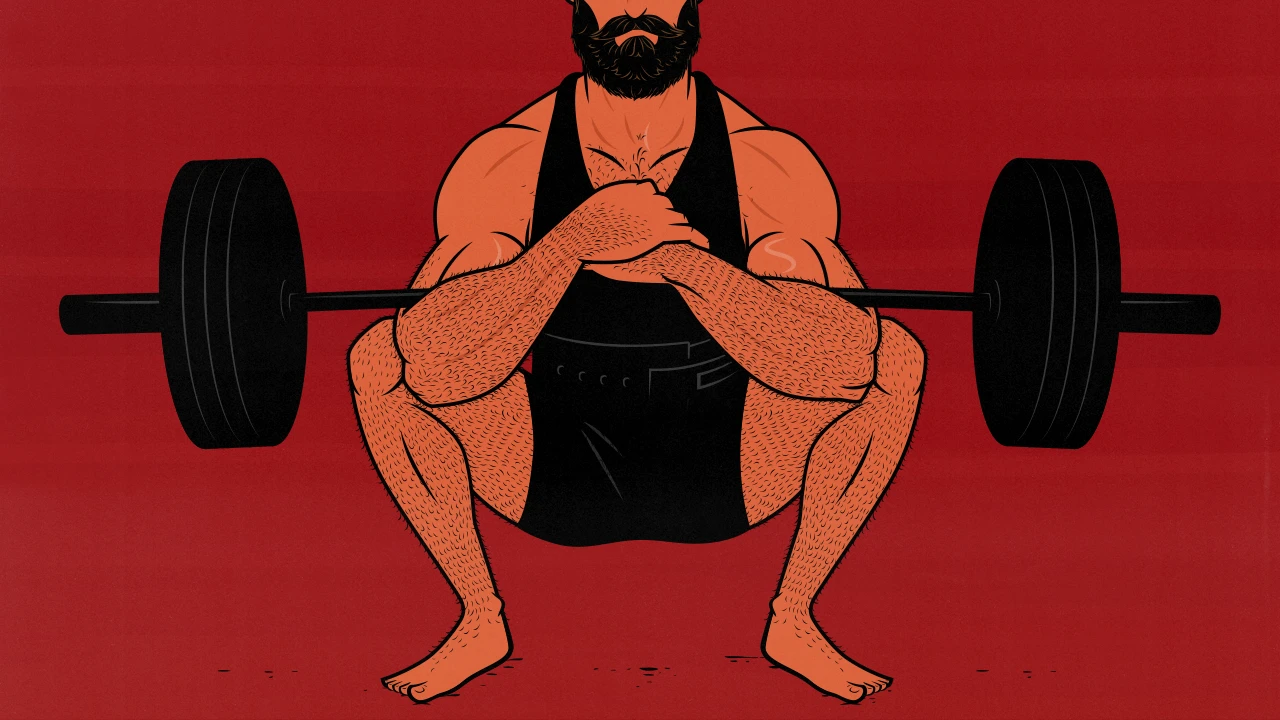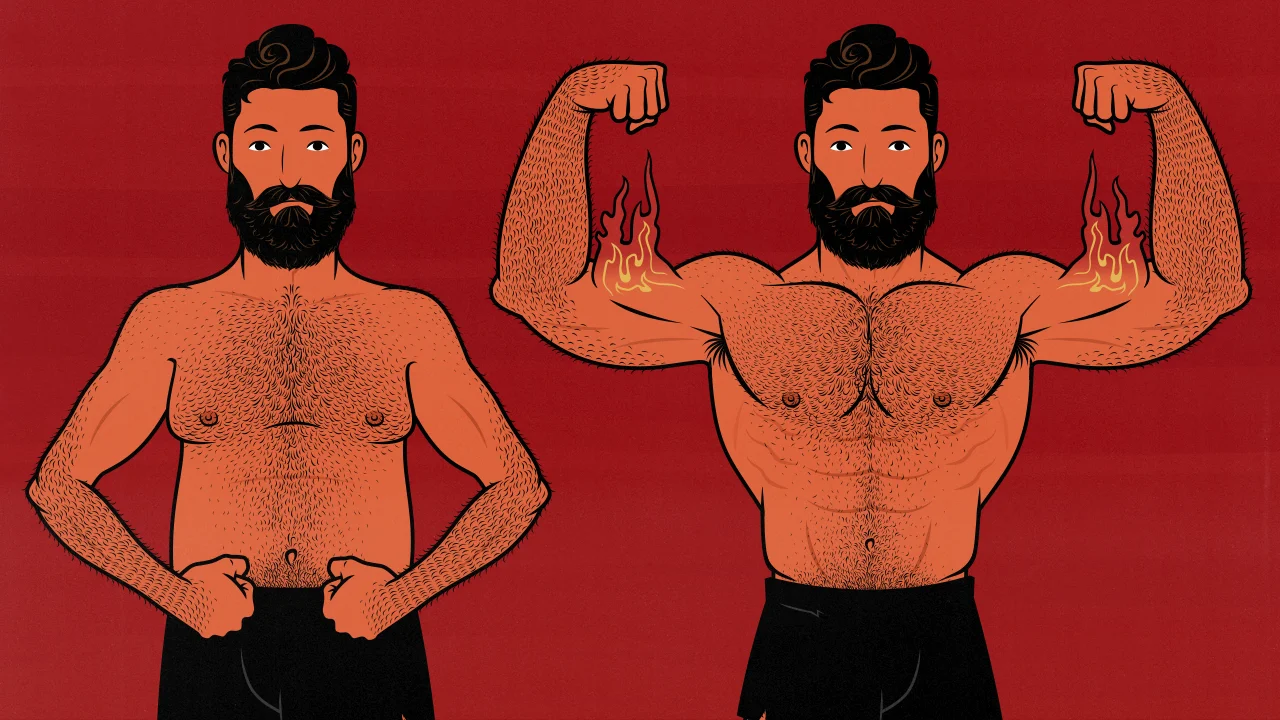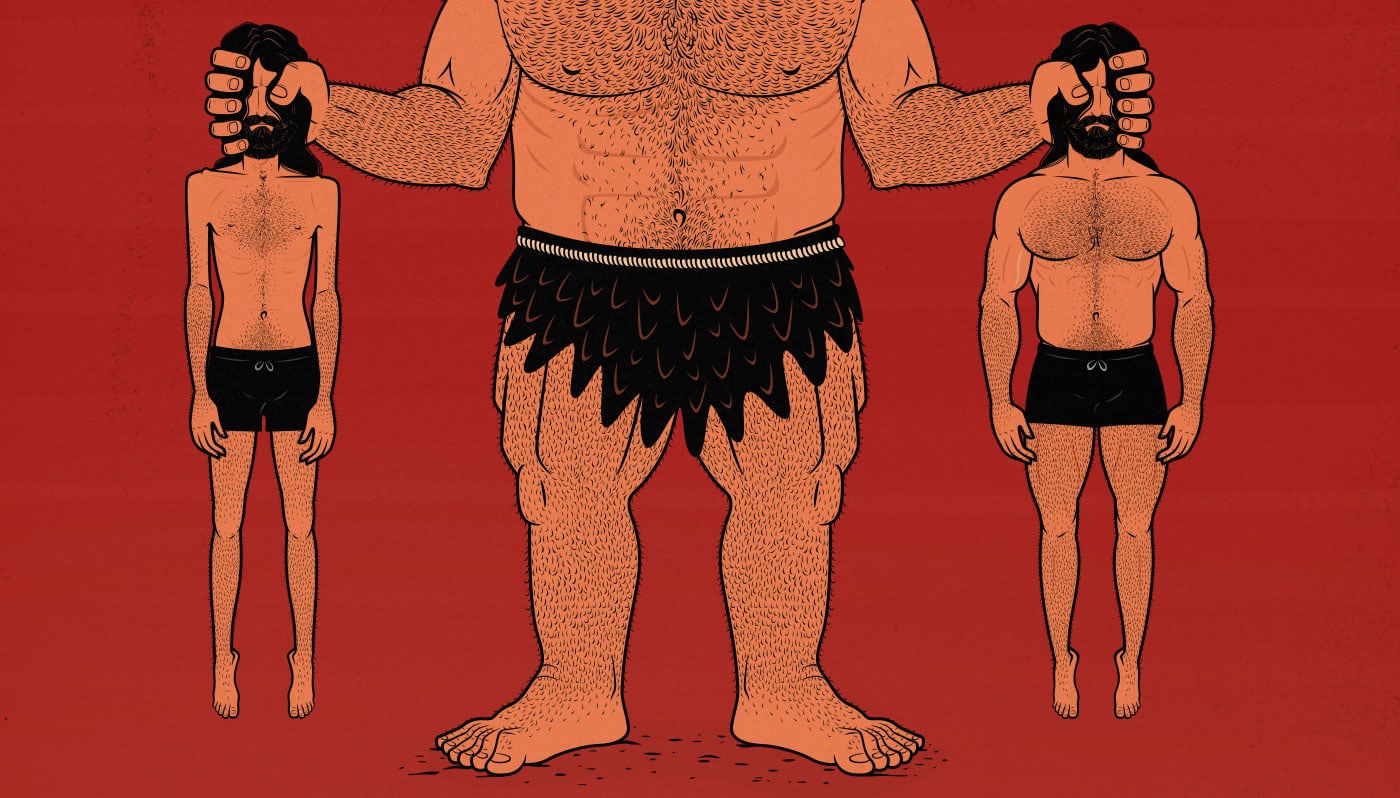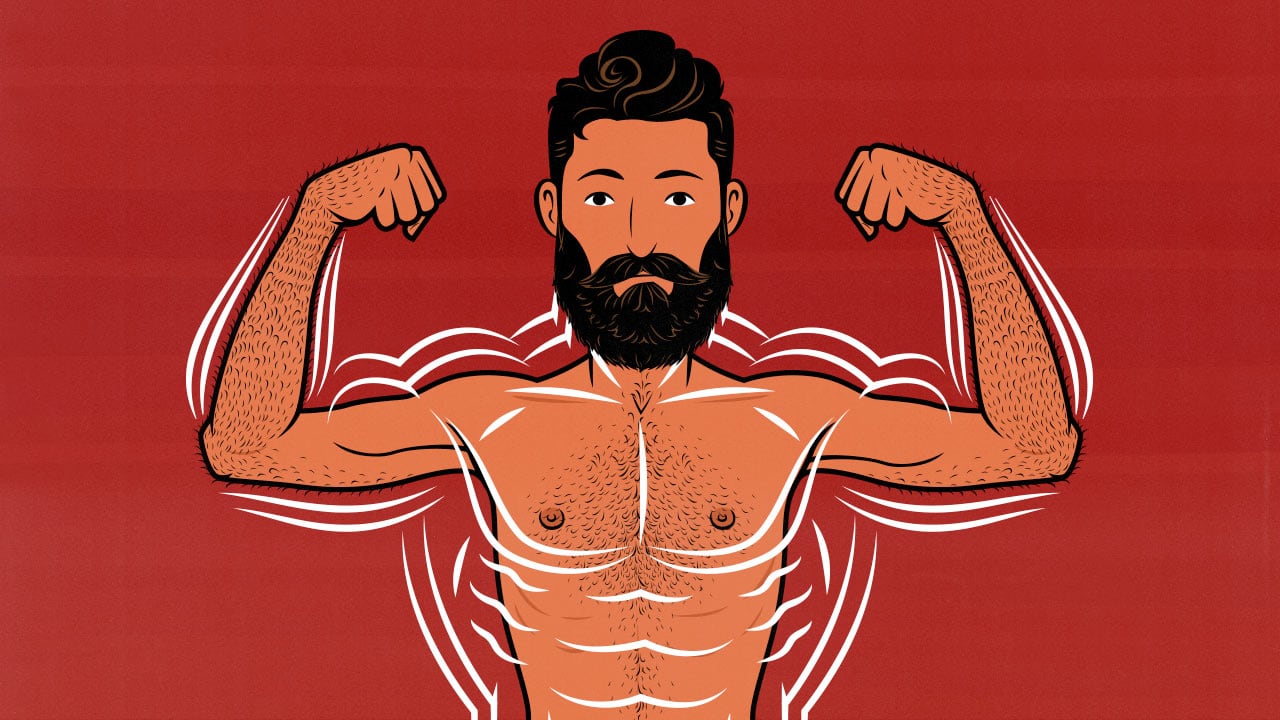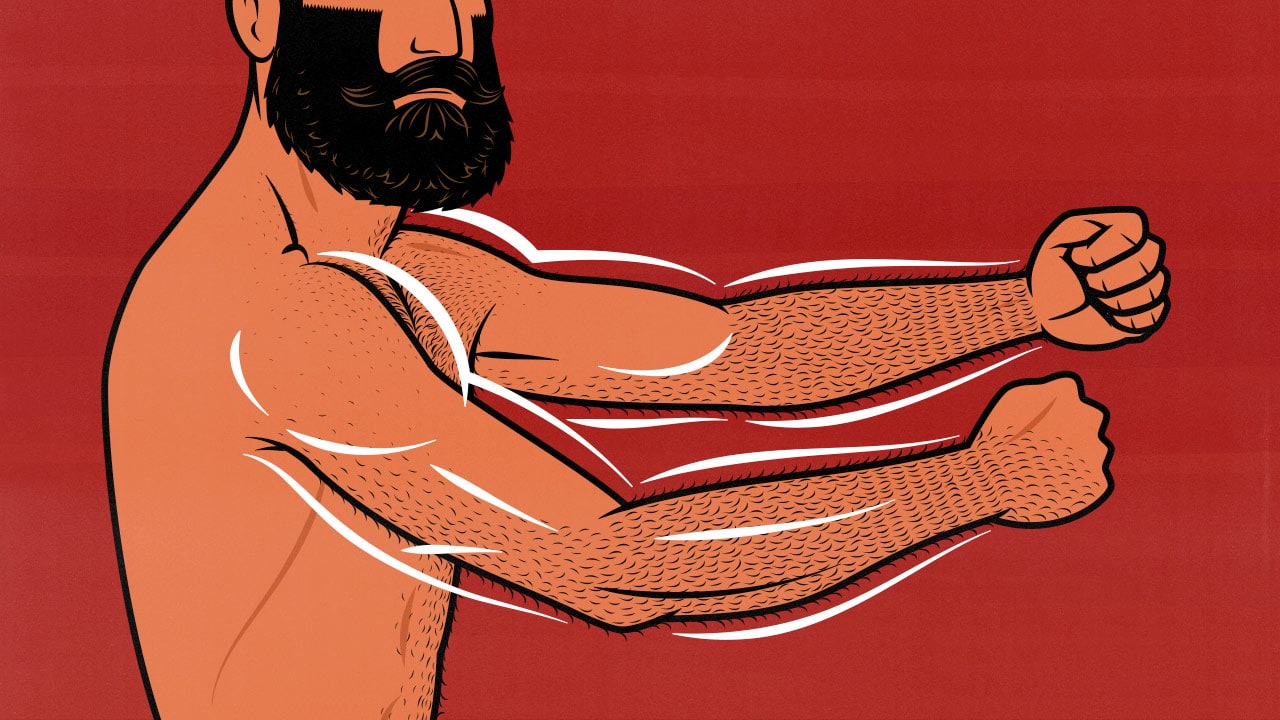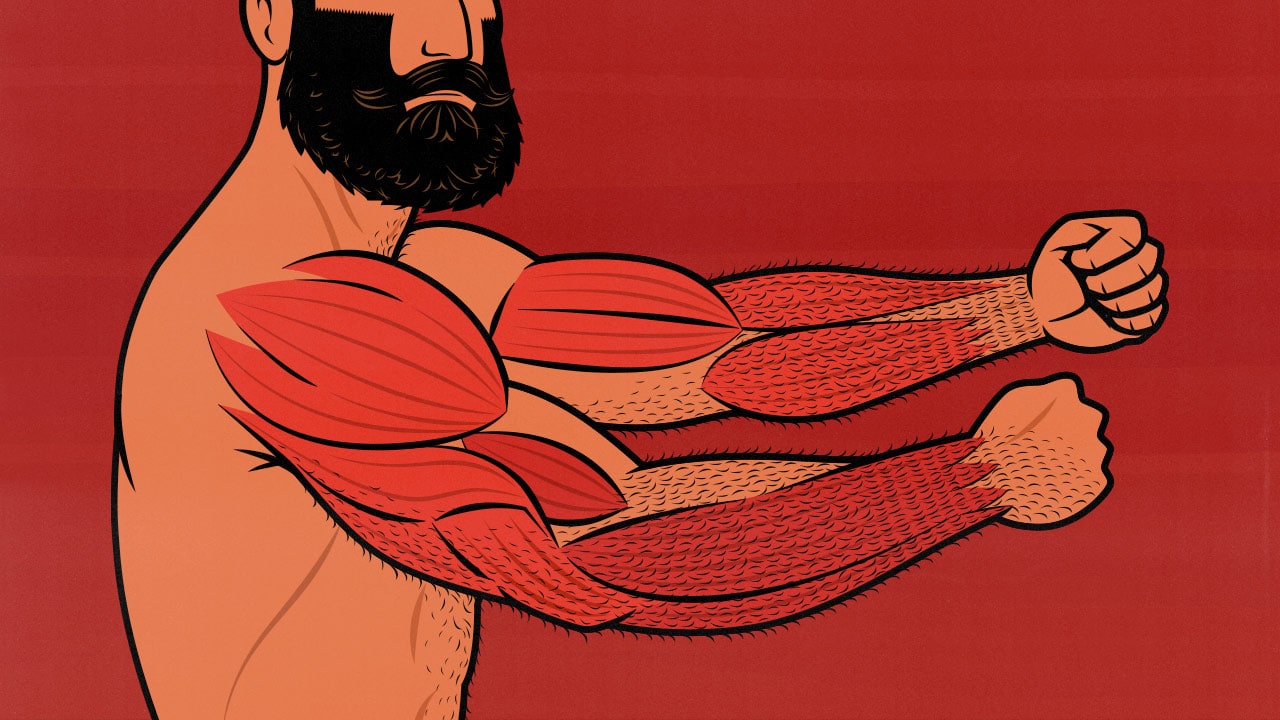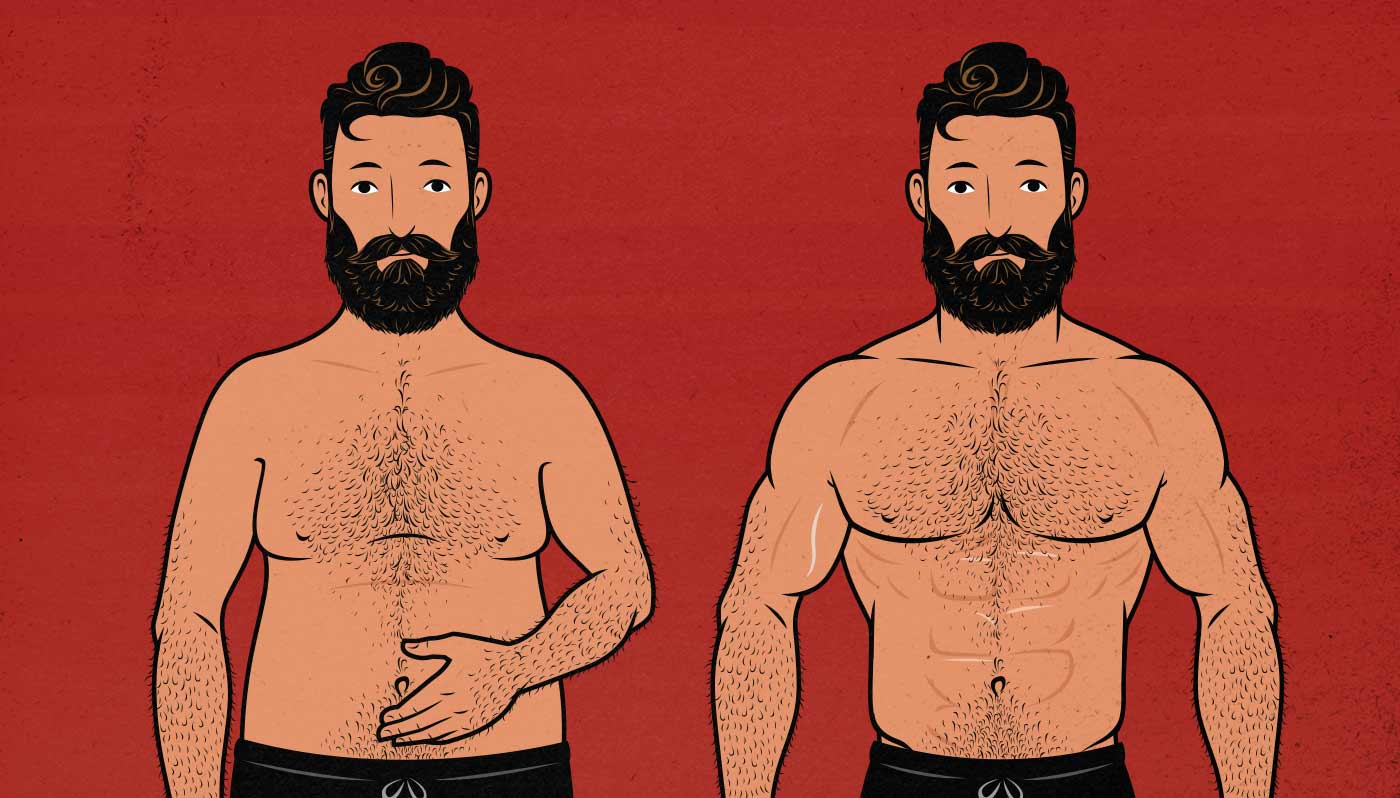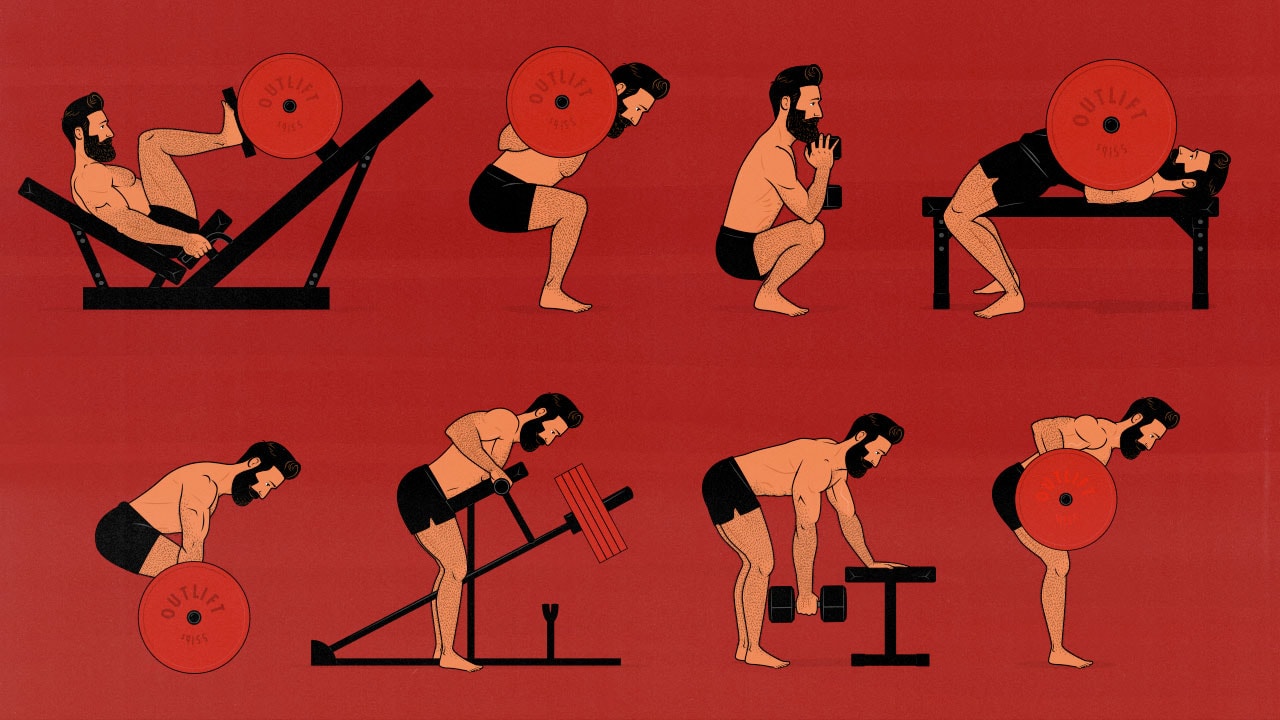Articles
The Best Dumbbell Back Exercises & Workout
You can build a big, strong, and balanced back with just dumbbells. Chin-ups and pull-ups are the foundation of most back workouts, but it’s pretty easy to replace them with dumbbell exercises.
Our main Bony to Beastly Program heavily emphasizes dumbbells. Some of our best transformations come from guys training at home with a simple dumbbell home gym. You aren’t at much of a disadvantage. Dumbbells are fantastic for building muscle.
Still, good back workouts are difficult to program. Each back muscle is responsible for slightly different movements and thus benefits from slightly different exercises. That’s why a good back workout usually has around 3 different complementary back exercises.
Delve into the detailsThe Best Upper/Lower Workout Split for Building Muscle
When I first met Marco, he had just finished studying under Eric Cressey, the head strength coach for the New York Yankees, and was working as the strength coach for professional football and rugby players. He had almost all of them on an Upper/Lower Workout Split.
The classic Upper/Lower Split has two lower-body workouts and two upper-body workouts, giving you four workouts per week. It’s a balanced routine, but it works your lower body harder than most bodybuilding routines, making it a great choice for athletes, especially if your sport is built around running.
You can also add a fifth workout, adding more emphasis to the muscles you’re most eager to grow. For most men, that means adding a third upper-body workout. For many women, that means adding a third lower-body workout.
Delve into the detailsThe Best Lower-Body Workout for Building Muscle
“Leg Day” and “Lower Body Workout” sound similar, and indeed they are. The difference is that Leg Days are usually used by bodybuilders, whereas Lower Body Workouts are more often used to gain a mix of size, strength, and athleticism. They’re part of a different training tradition.
When you split your body in two, you can train it half as much but twice as often, making your workouts shorter and easier. Or you could devote more time and energy to the muscles you’re training, increasing the overall stimulation. We’ll show you how.
Delve into the detailsBody Recomposition: How to Build Muscle While Losing Fat
Body recomposition is when you build muscle while losing fat. It sounds like the Holy Grail, but it isn’t quite so rare as that. Recomping is realistic for most people. We’ll show you client transformations and study results.
You can recomp by lifting weights, doing cardio, eating a better diet, or improving your sleep. We’ll delve into each of those methods, including the results you can expect with every change you make. But you can do much better than that.
The shotgun approach is when you do a few different things, hoping at least one of them gives you the results you want. We’ll take a firing squad approach, firing several well-aimed bullets. Each method is strong enough to reliably produce results. Together, they’re truly fearsome.
Delve into the detailsHow to Bulk Up: The Complete Guide for Skinny Guys
I was underweight well into my twenties. I would read guides about how to build muscle, and I would try them, but they wouldn’t work. They would urge me to bulk slowly and leanly, filling me with a fear of fat gain. But I wasn’t scared of gaining fat. That wasn’t my problem.
I wanted to build muscle fast—as fast as I possibly could. I didn’t care if my gains were perfectly lean, I just didn’t want to be skinny anymore. So, I ignored the conventional wisdom. I bulked more aggressively, gaining 20 pounds in 3 months, and to my great surprise, I didn’t even gain a noticeable amount of body fat.
Shortly after that, I came into contact with Marco, a strength coach helping college, professional, and Olympic athletes bulk up during their off-seasons. He was as naturally skinny as I was. He taught me how to bulk the proper way. I gained another 25 pounds in another 3 months.
Since then, we’ve helped 15,000 other skinny guys replicate those same results. In this article, we’ll teach you how you can do it, too.
Delve into the detailsThe Best Upper-Body Workout for Building Muscle
An upper-body workout trains most of the muscles in your upper body. When you split your body in two, you could train it half as much but twice as often, making your workouts shorter and easier. Or you could devote more time and energy to the muscles you’re training, giving them a greater stimulus to grow.
These upper-body workouts go best with at least one lower-body per week. There was a primeval species who neglected to do so, and with every generation, their legs withered away. Undeterred, they propelled themselves through the air with their powerful arms and chests. That is how birds came to be. That’s why people who skip leg day are called chickens.
Delve into the detailsThe Best Beginner Arm Workout
Do beginners even need an arm workout? Think of programs like Starting Strength and StrongLifts 5×5. Neither of them have any arm exercises, let alone a dedicated Arm Day. That can cause your arms to lag behind the rest of your muscles.
It’s also common for beginners to jump into advanced bodybuilding routines that aren’t very good for novices. The training splits are needlessly complicated, the arm workouts are total overkill, and the routines still aren’t ideal for building bigger arms.
Delve into the detailsThe Best Arm Day Workout for Building Muscle
Arm Day is an entire workout routine focused purely on arm exercises. It’s what allows the Bro Split to stimulate more arm growth than almost any other workout routine.
Arm Days are simple in theory. Arm muscles aren’t hard to train. But you still need a fruitful combination of exercises. If you’re doing more than one type of biceps curl or triceps extension, you’d best have a good reason for it. We’ll explore those reasons.
You also need to watch out for putting too much stress on your elbow joints. It’s common for barbell curls, skull crushers, and overhead triceps extensions to hit the elbows pretty hard. We’ll teach you how to navigate those perilous waters.
Delve into the detailsIs Lifting Weights Good for Burning Fat?
Most of us can grit our teeth, go on a diet, and lose some fat. Most popular diets, ranging from keto to veganism, really do succeed at helping people lose weight (study, study). The problem is that motivation ebbs and flows.
When you finish a successful diet, you’re still the same person you were before. You still have the same appetite—the same stomach. The difference is you’re carrying less weight and burning fewer calories. That can make it extremely difficult to stay lean.
That’s where weightlifting comes in. A good workout can burn 200–400 calories, and that helps, but you can burn more calories by walking, jogging, or rucking. That isn’t why it’s valuable.
A pound of muscle burns around 6 calories per day at rest, but you also need to carry it around with you, causing it to burn closer to 12 calories per day. If you can gain 20 pounds of muscle, that’s an extra 240 calories burned without needing to do any extra exercise. If you build enough muscle while losing fat, you can eat the same amount of food you were eating before without regaining fat. That helps, but it’s still not the most important part.
The main reason lifting weights is so powerful is that when you inevitably start to regain weight, you’ll build muscle instead of storing fat. Your metabolism will increase as you build that muscle. You’ll eventually settle at a weight that’s easier to maintain.
Delve into the detailsThe Best Hypertrophy Exercises
Different exercises are designed for different goals. Powerlifters use the squat, bench, and deadlift to demonstrate their maximal strength. Olympic weightlifters use the snatch and clean-and-jerk to demonstrate their explosive power. And bodybuilders use hypertrophy exercises to stimulate muscle growth.
However, hypertrophy training is for more than just bodybuilders. Bigger muscles are stronger muscles, so anyone interested in being bigger, stronger, faster, healthier, or better looking will go through phases of hypertrophy training to gain more muscle mass.
This article is about the best exercises for stimulating muscle growth. It’s up to you what you decide to use those muscles for.
Delve into the details
